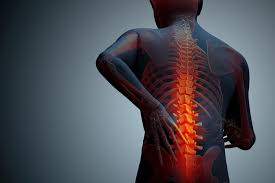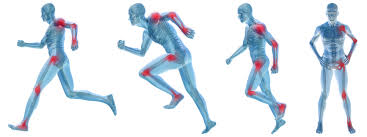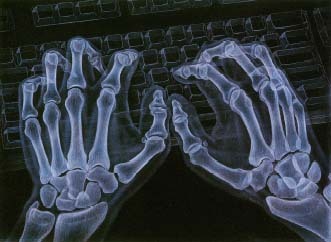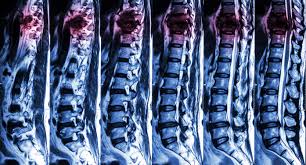Spinal Cord Injuries
The human spinal cord is a bundle of nerves that runs down the center of the back and is enclosed in bones that make up the spinal column. The spinal cord carries messages between the brain and the body. If the spinal cord is injured, it interrupts those messages between the body and the brain. Spinal cord injuries usually involve a blow or cut to the spine which either tears the spinal cord itself or affects one of the bones in the spinal column, causing it to press on the nerves in the spinal cord. This cuts off the communicating function of the spinal column. The nature of spinal cord injuries can change overtime, especially in the first few weeks when swelling is a major issue.
Physicians describe spinal cord injuries as complete or incomplete. A complete spinal cord injury means that the cord can’t carry messages at the point of injury or below. As a result, the injured worker is usually paralyzed below the spinal cord injury point. An incomplete spinal cord injury means that the injury results in some movement or feeling below the point where the spinal cord is injured.
The tragedy of a spinal cord injury is that the lifetime medical costs and home healthcare costs are very high and the emotional toll is often particularly taxing. Workers who sustain spinal cord injuries may be entitled to home healthcare, housekeeping, yard services, and transportation, as well as medical expenses, counseling, and lost wages.
Even if workers with spinal cord injuries eventually are able to return to work, the process is difficult. The injured worker may need additional education to understand the complexities of the injury, need help building endurance, and need the assistance of a medical team of professionals. Federal and state resources, as well as workers’ compensation vocational rehabilitation vouchers exist to help overcome some of the hurdles that an injured worker may encounter upon returning to work, depending on the severity of the injury. If employment is no longer possible, Social Security Administration benefits and long term disability insurance benefits may be available, besides the benefits that workers’ compensation provides.
If you feel that you have experienced a work-related spinal cord injury, you may need to seek the help of legal counsel with experience in the area of worker’s compensation law. Workers’ compensation attorneys can help you obtain the medical care you need and understand what benefits you are legally entitled to under workers’ compensation law.
Rowen, Gurvey & Win has represented many injured workers who unfortunately have sustained spinal cord injuries. We are adept at securing the best nurse case managers to assure better rehabilitation and medical treatment and are dedicated to obtaining the best possible benefits for our clients. Our firm is well equipped with the experience and resources that you need to fully understand your rights under worker’s compensation law, get the medical care that you need, and develop a strong legal case so you can obtain the benefits that you may be entitled to, including payment of disability benefits and coverage for medical expenses, as well as a substantial settlement, or award from the court.
Please see the Frequently Asked Questions (FAQ) section of our website for further information on the California workers’ compensation system and the benefits to injured workers provided under the California workers’ compensation laws.
For further information and a free consultation, please contact us: (818) 981-9960.









